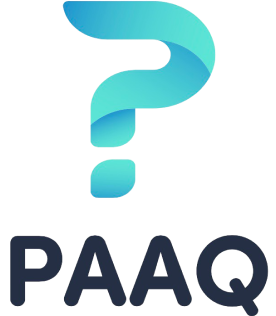In today’s rapidly evolving economy, knowledge is one of the most valuable commodities. Experts, consultants, and professionals across various industries are realizing the potential of monetizing their expertise by turning it into a sustainable business. But more importantly, they are discovering the art of scaling this knowledge to reach broader audiences and generate greater impact.
Scaling a knowledge-based business requires more than just expertise—it demands strategy, focus, and a deep understanding of the needs of your target audience. In this article, we’ll explore how to take what you know and turn it into a business model that grows without overwhelming you.
Identify Your Niche
The first and most crucial step to turning knowledge into a scalable business is identifying a clear niche. In a world where information is abundant, what sets successful professionals apart is their ability to focus on a specific area of expertise. This not only allows you to hone in on your strengths but also ensures that you attract a dedicated audience looking for specialized knowledge.
For example, if you’re an expert in digital marketing, drilling down further into a niche like social media strategy for small businesses will make you stand out. Your goal is to become the go-to expert in a specific field, which creates opportunities for growth as people recognize your unique value.
Develop Repeatable Services
Once you’ve identified your niche, the next step is to create services that can be easily repeated and scaled. This is key to preventing burnout and ensuring that your knowledge-based business can grow without requiring more of your time than is sustainable.
Consider developing a framework or system that can be applied to different clients or situations. This could be in the form of consultation packages, online courses, or workshops. The idea is to offer something that can be tailored to individual clients but doesn’t require starting from scratch every time.
For instance, a consultant specializing in leadership development might create a core leadership training program that can be adapted for various industries. By standardizing your service offering, you create a product that is easy to replicate and scale.
Utilize Technology for Efficiency
One of the biggest advantages of running a knowledge-based business today is the ability to leverage technology. From automation tools to digital platforms, technology allows you to reach a broader audience without needing to increase the hours you work.
Consider utilizing online course platforms, webinar software, and scheduling tools to streamline your operations. Automation tools can handle administrative tasks like scheduling meetings, sending follow-up emails, and invoicing, which frees up more of your time to focus on high-value tasks like consulting and content creation.
Additionally, embracing digital platforms for delivering your knowledge—whether through recorded courses, downloadable resources, or virtual workshops—opens up new avenues for scalability. Instead of one-on-one consultations, these platforms allow you to deliver knowledge to multiple clients simultaneously, multiplying your impact.
Build a Personal Brand
A strong personal brand is essential for scaling any knowledge-based business. When people recognize you as an expert in your field, they are more likely to seek out your services, trust your advice, and recommend you to others.
Building a personal brand involves consistently putting yourself and your knowledge in front of your target audience. This could mean writing blog posts, creating video content, speaking at industry events, or engaging on social media. The more you share your insights, the more visible and credible you become in your niche.
Think of thought leaders in various fields—they’ve built their reputations by continuously offering valuable insights and advice, positioning themselves as authorities. You don’t need to be a celebrity to build a personal brand, but you do need to be consistent, authentic, and committed to sharing your knowledge.
Focus on Impact, Not Just Growth
While scalability is important, it’s equally critical to focus on the impact your knowledge has on your clients. In the end, the success of your knowledge-based business will depend on the results you deliver and the value you provide. Even as you scale, your priority should be on helping your clients achieve tangible outcomes.
A scalable business doesn’t mean a distant or impersonal one. Whether through personalized follow-ups, regular check-ins, or simply being available to answer questions, maintaining strong client relationships is key. Your reputation will grow along with your business if clients feel valued and continue to experience positive results from your expertise.
Scaling a knowledge-based business is both an art and a science. It requires the ability to define a niche, create repeatable services, and leverage technology—all while maintaining a focus on providing high-impact, personalized services. By building a strong personal brand and continuously refining your offerings, you can grow your business without losing sight of the core value you bring to your clients.
Whether you’re a consultant, coach, or expert in any field, turning your knowledge into a scalable business is a powerful way to expand your influence, increase your revenue, and create lasting value for your clients.







